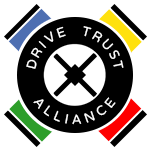Ransomware Bombs Lurking On Your Computers—Free Fix Announced
Pittsburgh PA, December 11, 2017: There are many millions of computer hard drives, from every hard drive maker, that are especially open to devastating ransomware attacks not previously reported. These drives are known as a TCG Self-Encrypting drives (SEDs). If they are not properly initialized, there can be trouble with ransomware attacks. If these are properly initialized, there is little or no danger of these ransomware attacks. Most Solid State Drives (SSDs) and many Hard Disk Drives in laptops, desktops, and servers worldwide fall into this category. People worldwide use these drives today for boot drives, attached storage, and server storage. Very few of these people even know they own vulnerable SEDs.
Ransomware is not a thing of the past. It continues. An unsuspecting victim clicks on an email attachment, or something on the web, and nearly instantaneously, his data is encrypted by the attacker. The attacker then demands a ransom payment to unlock his data. Nobody is safe from a successful ransomware attack. As one government official has remarked, it is not a question of “if” it is a question of “when.”
For over a decade these SED drives have been in distribution. All too often, the software on the systems does not properly initialize the drives to prevent such ransomware attacks. The hacker can then easily employ the strong built-in drive encryption to encrypt the data on it, nearly instantaneously. As Dr. Robert Thibadeau of DTA remarks, “Notably, even Microsoft Bitlocker often does not detect the TCG Self-Encrypting drive, and will use Software Bitlocker. It then leaves the drive open to a ransomware attack that the poor person did not expect. The same is most often true for other security software such as virus checkers.”
The Drive Trust Alliance (DTA) has introduced a small Windows program, for free, SEDProtect.exe, which will detect any vulnerable TCG Opal Self-Encrypting Drive connected to a host machine. SEDProtect is based on DTA Open Source which may also be downloaded for inspection. See www.drivetrust.com/protect . The protection is simple and done once for the life of the drive. It is as easy as typing an owner password for the drive.
For USB Attached storage, DTA has introduced the Personality Series of USB Self-Encrypting Drives that provide mobile ransomware-proof SED USB attached data storage. The USB Personality Series includes personal, small IT shop, family, archival, and forensic drives at the same price. They are available on Amazon under “DTA hardware encrypting”. The Personality Series software can also detect any other vulnerable USB drive that happens to be Opal, and will permit the owner to secure and manage that drive as well.
DTA urges everyone to check and protect their machines for Opal self-encrypting drives. Opal drives have been in distribution by every drive maker for over a decade, and most SSDs are Opal and are open to the attack. Most laptop, desktop, and server owners do not even know they have them. Protected, the real owner of the drive can benefit from the self-encrypting drive’s amazingly strong privacy and security assurances. Unprotected, the ransomware can rely on that hardware-based protection to get his ransom.
The Drive Trust Alliance (www.DriveTrust.com) has an educational and technical mission to improve adoption of hardware-encrypting storage technologies. These include Apple iOS devices and Trusted Computing Group (www.trustedcomputinggroup.org/storage) self-encrypting drive technologies. The DTA website provides an authoritative single resource on these technologies, including a complete suite of open-source based software for managing hardware encryption on Windows, Macs, and Linux.
Contact: www.drivetrust.com

